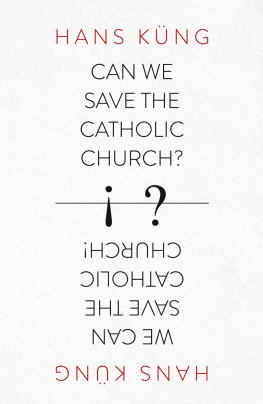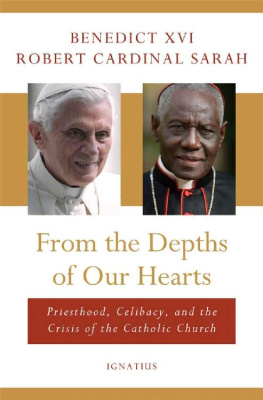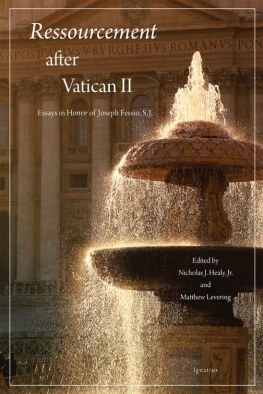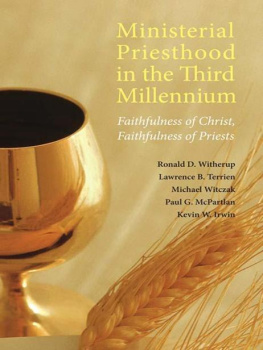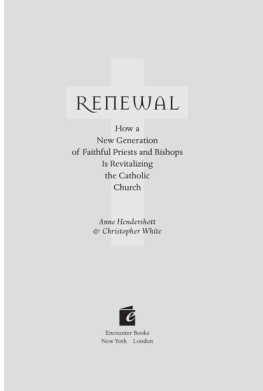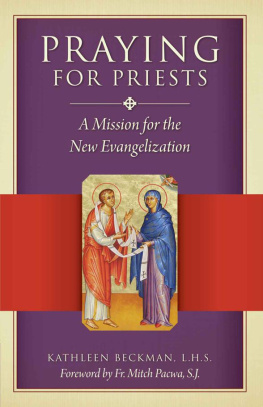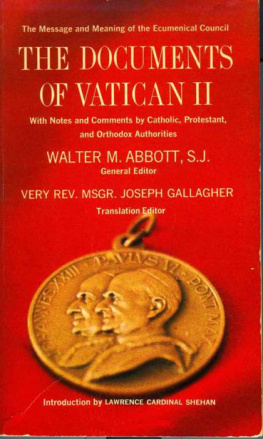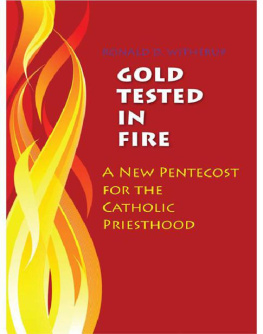I thank several of my colleagues on the faculty and in the administration of Seton Hall University for the encouragement and assistance they have provided me during the writing of this book: Father Lawrence Frizzell, D. Phil., associate professor and program director of Jewish Christian Studies has been especially helpful in guiding me with rabbinic sources; Father Pablo Gadenz, S.S.L., S.T.D., assistant professor of Biblical Studies in the Seminary School of Theology has offered expert counsel regarding scriptural questions; Monsignor Anthony Ziccardi, S.S.L., S.T.D., the universitys vice-president for mission and member of the Seminary School of Theologys Biblical Studies department, read and commented on parts of the text; Father Thomas Guarino, S.T.D., Professor of Systematic Theology in the Seminary School of Theology has been an endless source of encouragement and sage advice. And thus any errors in this book should be attributed to me alone.
Introduction
The History of the Assault and the Rationale of This Rejoinder
I t could well be argued that priesthood, along with kingship and prophecy, is one of the great and enduring archetypes of human experience. By this I mean not only did priesthood, prophecy, and kingship appear early in human history but to this day we have significant examples of each in our midst. No doubt, certain and serious qualifications have to be made with regard to the contemporary character of these ancient, perhaps eternal, archetypes. For example, while there are still some kings among us, today most kings reign but do not rule. As for prophecy, false prophets have always been a problem. And today when prophetic voices abound, the very abundance of these voices often creates more confusion than understanding because today prophetic voices can be found on every side of every issue. As for the institution of priesthood, though it still has several important expressionsthe Brahmans of Hinduism, the lamas of Tibetan Buddhism, the kennushi of Shinto, and the principal clergy of Orthodox and Catholic Christianitytoday there are significant challenges to both the concept and institution of priesthood. In Tibet the challenge comes externally from political oppression. But in Catholic Christianity both the idea and the institution of priesthood have been challenged, and in Catholic Christianity the challenges have come not only from outside but also from within. To understand this latest assault on priesthood, we need to see it within the broad context of the history of priesthood in general and more specifically within the Christian tradition. And so here, after some initial observations regarding the phenomenon of priesthood in the history of religions, we look at the origin and development of priesthood in the biblical traditions of both Old and New Testaments and then the evolution of the concept of priesthood in Christian thought both ancient and modern. After that survey we describe the origin and character of the current assault and propose a strategic response to it.
Priesthood in the History of Religions
In terms of comparative religion, a priest can be defined as that individual who not only discerns and communicates the will of God but can effectively mediate between the divine and humankind. This is because, as a priest, he knows how to present a sacrificial offering so that it becomes the most eloquent expression of grateful praise to a gracious god, or the most effective means of expressing sorrow and contrition before offended deity. This idea has found significant expression in the general history of religions, both in the ancient past and even to this day.
The academic discipline of history of religions demonstrates how the ancient world was full of priestly cults. No doubt atheism has always been an option. The Bible itself witnesses to this truth. See Ps 53:1, The fool says in his heart, There is no God. In classical Greece, the philosopher Epicurus (341270 BC), who espoused a philosophy of atomic materialism, gave atheism a certain intellectual character. Nevertheless, all evidence suggests earliest human beings were not only markedly religious but, from early on, primitive human beings were quick to intuit the special importance of sacrificial offerings. Moreover, cultural historians have also made it clear to us that it is not just among primitive societies that priesthood and sacrifice are observable. Indeed, there is considerable evidence to illustrate the fact that in the most sophisticated societies of the ancient world, Greece and Rome, priesthood and sacrifice were not just a prominent aspect of public life but also the object of the highest philosophical inquiry.
For example, Athens of the fifth century before Christ is now regarded as one of the most remarkable periods in the history of human development, a time when science, medicine, politics, and theater were all being invented. But at that same time, Pericles (495429 BC), the great military commander and statesman, ordered the construction of a great temple at Athens, the Parthenon, at the pinnacle of the city. Although the outline of this temple towers over Athens to this day, it is in Londons British Museum that one can view a relief sculpture from the south frieze of the Parthenon that depicts the sacrificial rite of cattle being led to slaughter. Consider also how Plato (427347 BC) dedicated an entire dialogue to a consideration of priesthood and sacrifice. Platos dialogue Euthyphro presents us with yet another archetype of human experience: the religious zealot. The title character is a young Athenian whose religious enthusiasm leads him to assume the role of the priest, for as he himself says, I speak in the assembly on religious matters and predict the future for them. The assembly he refers to is the Athenian political assembly and his predicting the future is a reference to his performing the priestly rite of divination. His religious enthusiasm is such that he is intent on offering his father as an expiatory sacrifice. But his interlocutor in this dialogue, Socrates, challenges the young man regarding the nature of true piety and the role of sacrifice therein.


